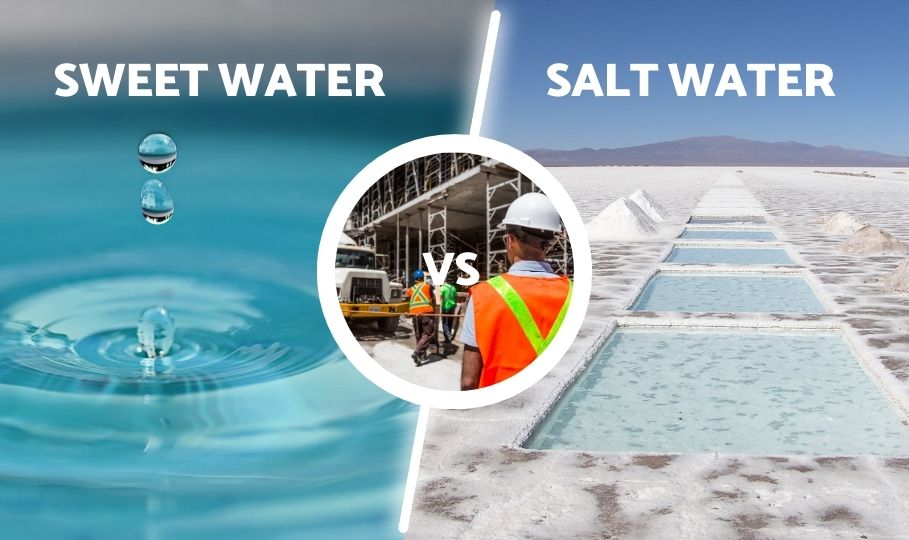Water is a crucial element in construction, impacting everything from concrete mixing to dust suppression. In Dubai, both sweet water and salt water are utilized, but each has its advantages and disadvantages. Understanding the differences can help you make an informed decision for your construction projects.
What is Sweet Water?
Sweet water, also known as freshwater, is low in dissolved salts. It is essential for drinking, irrigation, swimming pools, and many industrial applications. In construction, sweet water is primarily used for concrete mixing and curing, as it does not compromise the structural integrity of the materials.
What is Salt Water?
Saltwater contains higher concentrations of dissolved salts, primarily sodium chloride. While readily available, its usage in construction is limited due to its potential to cause corrosion and weaken structural elements over time. However, it can be used for certain non-structural purposes, like dust suppression and earth compaction.
Advantages of Sweet Water in Construction
- Strength and Durability: Sweet water ensures optimal strength and durability of concrete structures.
- No Corrosion: It does not corrode steel reinforcements, maintaining the integrity of the building.
- Compatibility: It is compatible with all construction materials and processes.
Disadvantages of Sweet Water
- Cost: Sweet water is more expensive, especially in arid regions like Dubai.
- Limited Availability: It may not always be readily available in large quantities, causing delays.
Advantages of Saltwater in Construction
- Cost-Effective: Saltwater is cheaper and more abundant, making it a cost-effective option for certain tasks.
- Non-Structural Uses: It is suitable for non-structural applications, such as soil compaction and dust control.
Disadvantages of Saltwater
- Corrosion: Saltwater can cause corrosion of steel reinforcements, compromising structural integrity.
- Reduced Strength: Concrete mixed with saltwater can be weaker and less durable over time.
Best Practices for Using Water in Construction
- Quality Testing: Regularly test water quality to ensure it meets construction standards.
- Appropriate Use: Use sweet water for structural elements and saltwater for non-structural applications.
- Preventive Measures: When using saltwater, take preventive measures like anti-corrosion treatments to protect materials.
Conclusion
Choosing between sweet water and salt water for construction depends on the specific needs and constraints of your project. For structural integrity and longevity, sweet water is the best choice. However, saltwater can be a viable alternative for cost-effective solutions in non-structural tasks.
FAQs
Q: Can salt water be used for mixing concrete?
A: While it can be used, saltwater can weaken the concrete and cause corrosion, so it’s not recommended for structural elements.
Q: Is sweet water always better for construction?
A: Sweet water is better for structural integrity, but saltwater can be used for non-structural purposes to save costs.
Q: How can I ensure the water quality for construction?
A: Regular testing and adhering to industry standards can ensure water quality suitable for construction needs.



